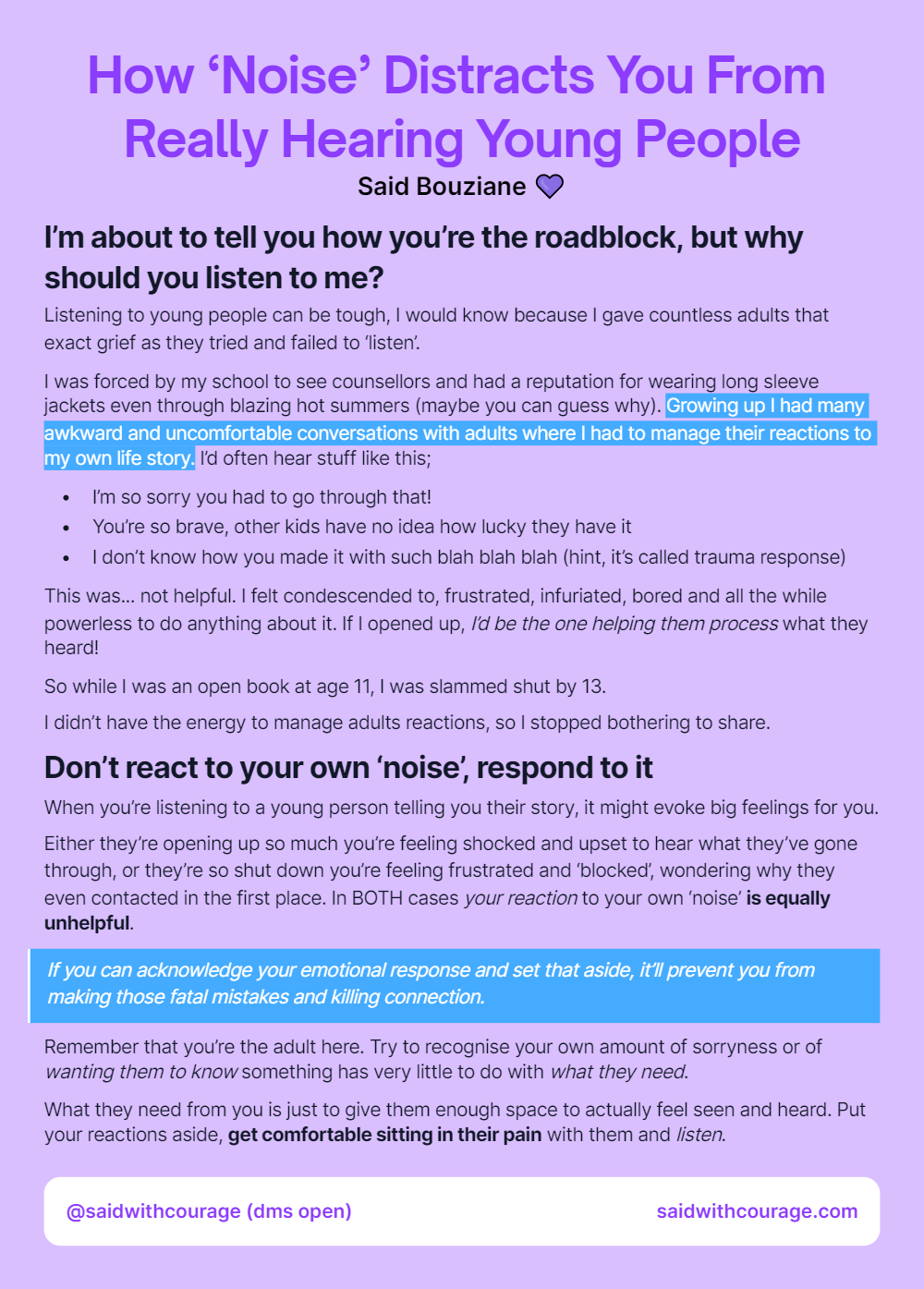I’m about to tell you how you’re the roadblock, but why should you listen to me?
Listening to young people can be tough, I would know because I gave countless adults that exact grief as they tried and failed to ‘listen’.
I was forced by my school to see counsellors and had a reputation for wearing long sleeve jackets even through blazing hot summers (maybe you can guess why). Growing up I had many awkward and uncomfortable conversations with adults where I had to manage their reactions to my own life story. I’d often hear stuff like this;
- I’m so sorry you had to go through that!
- You’re so brave, other kids have no idea how lucky they have it
- I don’t know how you made it with such blah blah blah (hint, it’s called trauma response)
This was… not helpful. I felt condescended to, frustrated, infuriated, bored and all the while powerless to do anything about it. If I opened up, I’d be the one helping them process what they heard!
So while I was an open book at age 11, I was slammed shut by 13.
I didn’t have the energy to manage adults reactions, so I stopped bothering to share.
Don’t react to your own ‘noise’, respond to it
When you’re listening to a young person telling you their story, it might evoke big feelings for you.
Either they’re opening up so much you’re feeling shocked and upset to hear what they’ve gone through, or they’re so shut down you’re feeling frustrated and ‘blocked’, wondering why they even contacted in the first place. In BOTH cases your reaction to your own ‘noise’ is equally unhelpful.
If you can acknowledge your emotional response and set that aside, it’ll prevent you from making those fatal mistakes and killing connection.
Remember that you’re the adult here. Try to recognise your own amount of sorryness or of wanting them to know something has very little to do with what they need.
What they need from you is just to give them enough space to actually feel seen and heard. Put your reactions aside, get comfortable sitting in their pain with them and listen.

